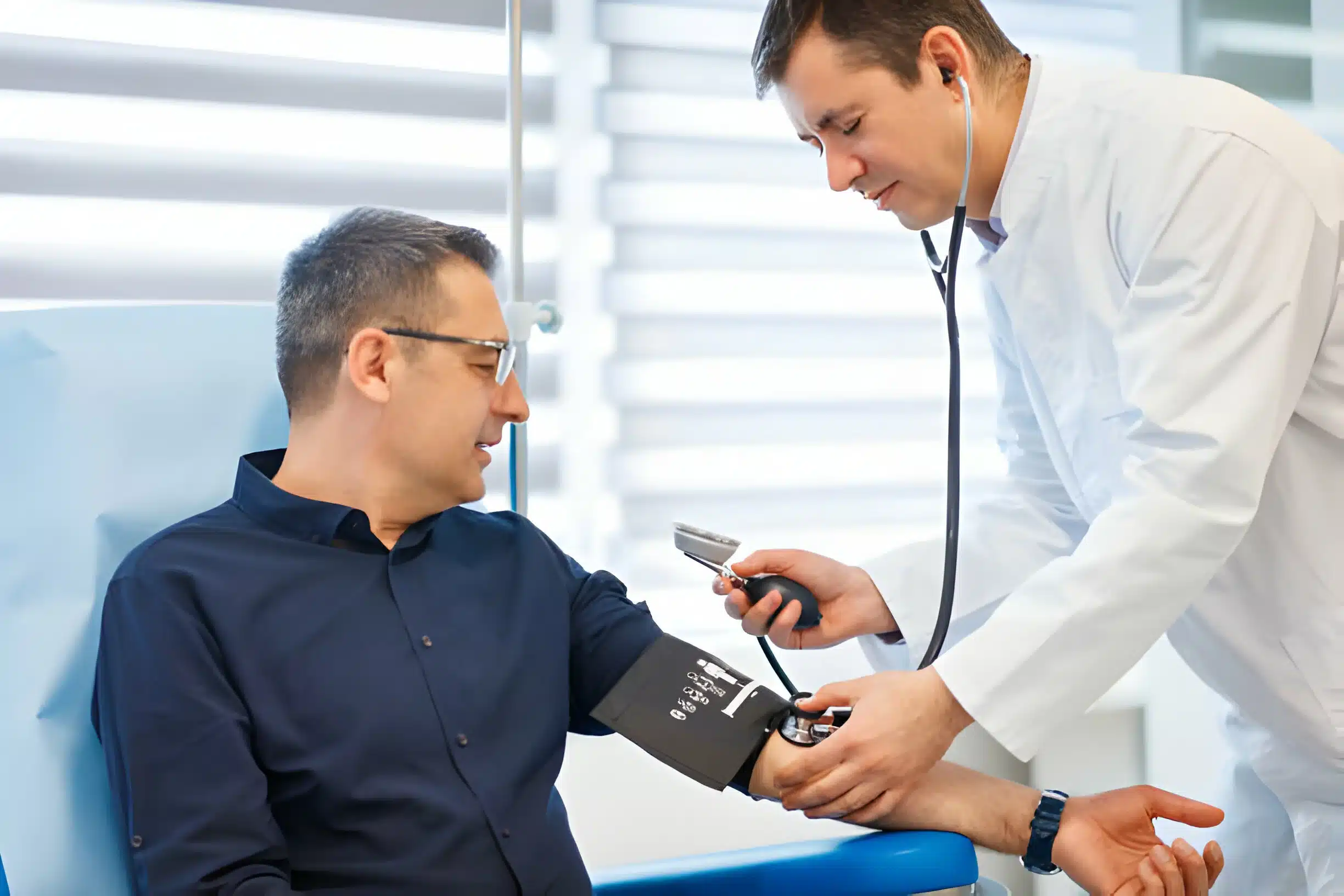Advertising Disclosure
Introduction

High cholesterol levels are a very common problem among most of us.
This is due to the unhealthy diet that we follow which is a deep-fried field of calories and some of the most toxic substances present in the ingredients category of the food.
Before talking deeply about high cholesterol we must understand what cholesterol is and what is its function in our body. Why is it so important that our cholesterol level should stay in balance and what are the factors that are affecting it? We need to understand it all so that we can connect the dots.
Cholesterol is a fatty substance that is present in cells and is responsible for maintaining the psychological as well as physiological integrity of our cells. A slight imbalance in cholesterol levels can lead to severe heart diseases and even cause blockage in the arteries.
In this blog, we will be talking about the causes of high cholesterol symptoms and also the risk factors that are associated with the problem of high cholesterol. So let’s dive in.
What is High Cholesterol?
Before going deeper with the blog first, let’s understand what cholesterol is. Cholesterol is a type of lipid that is waxy and a fatty substance that is found in our cells.
It is produced in our liver and that is the only prime source of production for lipids. You can also take lipids through dietary sources such as eggs and meats. Some more details about cholesterol are mentioned below:
- Cholesterol is present in the form of lipids and proteins in our bloodstreams which is the only reason why we also call them lipoproteins.
- There are three types of cholesterols present in our body that are low-density lipoprotein (LDL), high-density lipoprotein (HDL), and very-low-density lipoprotein (VLDL).
- Among all these three HDL is only referred to as good cholesterol and LDL is referred to as bad cholesterol. VLDL is responsible for blockages in our address as it is low in density.
- They help in balancing out the hormones such as progesterone and estrogen.
- They also play a very vital role in the cell integrity of our body.
Now coming back to high cholesterol then we can refer to high cholesterol as a surplus of total cholesterol in the blood, generally determined as a full cholesterol level that is 240 milligrams per deciliter (mg/dL) or higher.
Causes of High Cholesterol

Before treating high cholesterol we must understand what are the root causes of high cholesterol. These are caused by several factors such as diet, genetics, Lifestyle habits, and many other medical conditions.
Some of the major ones are discussed below:
- Lifestyle Choices: Unhealthy choices such as consumption of alcohol, smoking, and inappropriate physical activity lead to a boost in high cholesterol. It also leads to damage to our nervous system and causes inflammation in our body.
- Genetics: Familial hypercholesterolemia is a genetic condition depicted by high levels of LDL cholesterol from the beginning and this increases the risk of premature cardiovascular diseases in our body. Especially conditions like blockages of arteries and other important nerves in our body.
- Dieter factors: consumption of high levels of saturated and trans fat leads to elevation of bad cholesterol which results in high cholesterol levels. These food products are in the form of red meat, high-fat dairy products, fried foods, and processed snacks.
Symptoms of High Cholesterol
The symptoms of high cholesterol are hard to detect as they go unnoticeable because of the small impacts they make in our bodies. We have researched and selected some of the common symptoms that you can easily detect that point toward high cholesterol.
- In some cases, you may experience severe chest pain which is followed by heart palpitations and yellowish deposits near your eyes.
- Conditions like diabetes and hypothyroidism may lead to high cholesterol if not taken care of properly.
- You may experience pain in your upper abdomen, especially below your ribs. It happens due to excess cholesterol secreted by the gallbladder.
- Sudden numbness to one side of the body, not being able to speak properly, severe headache, and difficulty in moving are the early signs of heart stroke which is caused due to high cholesterol levels in your body.
Complications of High Cholesterol

High cholesterol is also known as a slow killer as the symptoms do not show themselves and tell them serious complications such as cardiovascular disease or heart stroke occur. There are other complications as well which happen due to high cholesterol levels in our body. The major ones are discussed below:
- Atherosclerosis: The high cholesterol level in the blood accumulates in the wall of arteries with particles of cholesterol and other small substances.
- This makes the diameter of the nerve smaller and the entire process of accumulation of cholesterol is known as Atherosclerosis. Due to this reason, there is difficulty in the passage of blood through our veins.
- Coronary Artery Disease (CAD): Atherosclerosis takes place in the arteries of the heart which leads to a shortage of blood supply into the heart. Due to this, several other complications start occurring which result in a shortage of blood supply Heart Attack, or heart failure.
- Heart Attack: Due to the blockage in the artery, there is a lack of Oxygen nutrients, and tissue in the heart. Due to this, there is Irreversible damage that is caused to the entire functioning of the cardio system in our body, and this ultimately causes a heart or heart attack.
- Peripheral Artery Disease (PAD): The blockage of the main artery, the coronary artery of the heart affects not only the working of the cardiovascular system but also the systems present outside. This results in severe cramps in the legs and upper and lower Limbs.
Prevention and Management
- A Nutritious Diet: Eat a diet high in whole grains, fruits, vegetables, and lean meats. Reduce your intake of red meat, full-fat dairy products, and processed foods that include saturated and trans fats. Add foods high in omega-3 fatty acids, like walnuts, flaxseeds, and fatty fish.
- Frequent Workout: Take up a regular exercise routine, such as cycling, swimming, jogging, or brisk walking. Try to get in at least 150 minutes a week of moderate-to-intense activity.
- Sustain a Healthy Weight: Lowering cholesterol levels can be achieved by losing excess weight. The cholesterol levels can benefit from even a small reduction in weight.
- Give Up Smoking: Smoking reduces HDL (good) cholesterol and destroys blood arteries. Giving up smoking can enhance cardiovascular health in general.
- Limit Consumption of Alcohol: If you consume alcohol, do so sparingly. While excessive alcohol use might elevate cholesterol levels, moderate alcohol consumption may protect the heart.
- Medications: Healthcare providers may recommend medication to assist control of cholesterol levels if lifestyle modifications alone are not enough. Medications that are frequently used include bile acid sequestrants, fibrates, niacin, and statins.
- Frequent Observation: Plan routine examinations and cholesterol tests to keep an eye on your blood pressure and general cardiovascular health.
By taking care of these small things you can prevent diseases that are caused due to high cholesterol levels in your body. These diseases are so dangerous that you can lose your life while fighting with them. The symptoms are not traceable and that’s the only reason why the result is so bad at the end.
